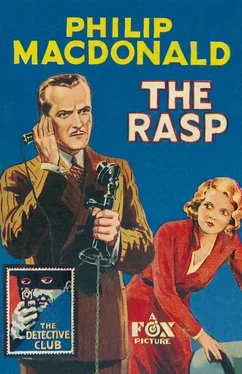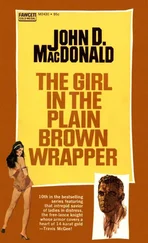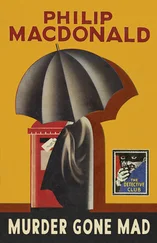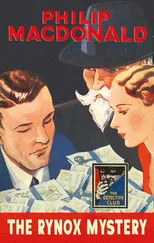MacDonald did not only write about Gethryn. In the 1920s and 30s he penned several other novels and some very good non-series detective stories, including two of the three titles published under the pen name of Martin Porlock: Mystery at Friar’s Pardon (1931) features an outrageously simple solution to a baffling ‘impossible crime’, and X v. Rex (1933) is one of the earliest crime novels to feature a serial killer. Almost all of his books were warmly praised, though some critics noted an increasing tendency to structure his books as if they were a treatment for a film. In fact, MacDonald’s first script was an adaptation of his own novel, Patrol , and the second, Raise the Roof (1930), is generally recognised as the first British film musical.
In 1931, after marrying the writer Florence Ruth Howard, Philip MacDonald moved to Hollywood to focus on writing for the screen rather than the page. His third full script was an adaptation of The Rasp (1932), co-written with another crime writer, J. Jefferson Farjeon. Directed by Michael Powell, The Rasp starred Claude Horton as Gethryn, and was well-received by critics and audiences, but sadly no copies are now known to survive and the film is considered lost. As well as adapting his own work such as Rynox (1932) for films, MacDonald produced many original film scripts throughout the 1930s and 40s, including several for the very popular Charlie Chan series based on the novels by John P. Marquand. Working sometimes with other writers, MacDonald also adapted the work of writers, such as Daphne du Maurier’s Rebecca (1930) and Robert Louis Stevenson’s The Body Snatcher (1945); he also wrote the script for two versions of Love from a Stranger (1937 and 1945), adapting Frank Vosper’s stage play, which was itself a heavily reworked version of a play by Agatha Christie, The Stranger , based on her own short story ‘Philomel Cottage’.
Although Philip MacDonald focused on screenplays for the cinema and television during the 1940s, 50s and 60s, he also wrote a small number of novels. These included The Sword and the Net (1941), a well-regarded Second World War thriller published under the by-line ‘Warren Stuart’, and Forbidden Planet (1956), the novelisation of the cult science fiction film of the same title. And after a solitary Gethryn short story, ‘The Wood-for-Trees’ (1947), 1959 saw the publication of the last and—in the opinion of many critics—the best of the Gethryn series, The List of Adrian Messenger . In this thrilling novel, Gethryn identifies the ruthless mind behind a series of seemingly accidental deaths. John Huston’s enjoyable 1963 film of The List of Adrian Messenger starred George C. Scott as MacDonald’s detective, with memorable if somewhat bizarre cameos from Tony Curtis, Burt Lancaster, Robert Mitchum and Frank Sinatra, as well as a brief appearance by Huston himself. The highlight of the film is a fox hunt, a controversial sport in which MacDonald had a lifelong interest. He had been a keen horseman from very young and had an unfulfilled ambition to ride in the Grand National. MacDonald also had a lifelong love of boxing, reflected in Gentleman Bill: A Boxing Story (1922), and he loved dogs—after moving to Woodland Hills in Los Angeles, he and Ruth bred Great Danes.
Philip MacDonald died in California on 10 December 1980. At his best he was among the most innovative of the writers of the so-called Golden Age of detective fiction and, in Anthony Gethryn, he created one of the great gentleman sleuths of the genre.
TONY MEDAWAR
May 2015
All the Birds of the Air
Fell a-sighin’ and a-sobbin’
When they heard of the death
Of Poor Cock Robin.
‘Who’ll dig his Grave?’
‘I,’ said the Owl,
‘With my little Trowel;
I’ll dig his Grave.’
‘Who killed Cock Robin?’
‘I,’ said the Sparrow,
‘With my Bow and Arrow,
I killed Cock Robin!’
CHAPTER I
TOLLING THE BELL
I
THE Owl shows its blue and gilt cover on the book-stalls every Saturday morning. Thursday nights are therefore nights of turmoil in the offices in Fleet Street. They are always wearing nights; more so, of course, in hot weather than in cold. They are nights of discomfort for the office-boy and of something worse for the editor.
Spenser Hastings edited The Owl , and owned a third of it; and the little paper’s success showed him to possess both brains and capacity for hard work. For a man of thirty-three he had achieved much; but that capacity for work was hard tested—especially on Thursday nights. As to the brains, there was really no doubt of their quality. Take, for instance, The Owl ‘specials’. After he had thought of them and given birth to the first, The Owl , really a weekly review, was enabled to reap harvests in the way of ‘scoops’ without in any way degenerating into a mere purveyor of news.
The thing was worked like this: If, by the grace of God or through a member of the ‘special’ staff or by any other channel, there came to Hastings’s ears a piece of Real News which might as yet be unknown to any of the big daily or evening papers, then within a few hours, whatever the day or night of the week, there appeared a special edition of The Owl. It bore, in place of the blue and gold, a cover of red and black. The letterpress was sparse. The price was twopence. The public bought the first two out of curiosity, and the subsequent issues because they discovered that when the red and black jacket was seen Something had really Happened.
The public bought the real Owl as well. It was always original, written by men and women as yet little known and therefore unspoilt. It was witty, exciting, soothing, biting, laudatory, ironic, and sincere—all in one breath and irreproachable taste.
And Hastings loved it. But Thursday nights, press nights, were undoubtedly Hell. And this Thursday night, hotter almost than its stifling day, was the very hell of Hells.
He ruffled his straw-coloured hair, looking, as a woman once said of him, rather like a stalwart and handsome chicken. Midnight struck. He worked on, cursing at the heat, the paper, his material, and the fact that his confidential secretary, his right-hand woman, was making holiday.
He finished correcting the proofs of his leader, then reached for two over-long articles by new contributors. As he picked up a blue pencil, his door burst open.
‘What in hell—’ he began; then looked up. ‘Good God! Marga—Miss Warren!’
It was sufficiently surprising that his right-hand woman should erupt into his room at this hour in the night when he had supposed her many miles away in a holiday bed; but that she should be thus, gasping, white-faced, dust-covered, hair escaping in a shining cascade from beneath a wrecked hat, was incredible. Never before had he seen her other than calm, scrupulously dressed, exquisitely tidy and faintly severe in her beauty.
He rose to his feet slowly. The girl, her breath coming in great sobs, sank limply into a chair. Hastings rushed for the editorial bottle, glass and siphon. He tugged at the door of the cupboard, remembered that he had locked it, and began to fumble for his keys. They eluded him. He swore beneath his breath, and then started as a hand was laid on his shoulder. He had not heard her approach.
‘Please don’t worry about that.’ Her words came short, jerkily, as she strove for breath. ‘Please, please, listen to me! I’ve got a Story—the biggest yet! Must have a special done now, tonight, this morning!’
Hastings forgot the whisky. The editor came to the top.
Читать дальше












